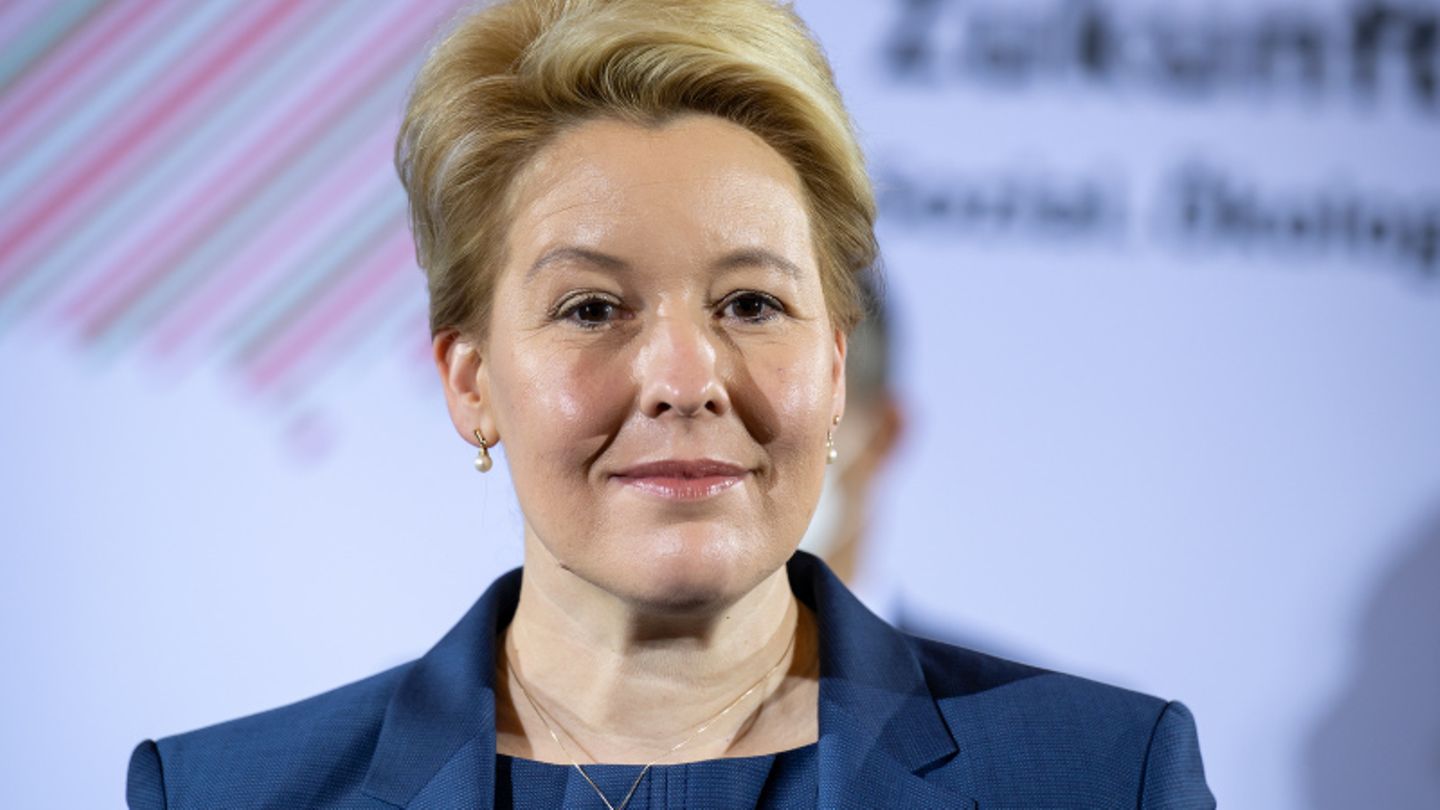In addition to the Bundestag, Berlin also elected a new state parliament on Sunday. For a long time there was a neck and neck race between the SPD and the Greens – in the end the favorite prevailed.
The SPD won the parliamentary elections in Berlin – and the capital is getting a ruling mayor for the first time. The party with top candidate Franziska Giffey reached 21.4 percent on Sunday after counting all voting districts and ended up ahead of the Greens, who achieved their best result in a Berlin election with 18.9 percent. According to the state election committee, the CDU reached 18.1 percent, the left came to 14.0 percent, the AfD reached 8.0 percent, the FDP 7.1 percent.
The House of Representatives election caused discussions because of organizational problems. Missing and swapped ballots and problems with subsequent deliveries meant that some voters had to wait a long time and only cast their votes well after 6 p.m. They counted until the early hours of the morning.
Head-to-head races for a long time
On Sunday evening, the office of head of government for her party initially seemed within reach for the Green top candidate Bettina Jarasch. But then, in the course of the evening, the SPD with top woman Giffey pushed forward in projections. As before, both parties could continue to form a coalition with one another and with the left.
“We have a head-to-head race between the SPD and the Greens, which means that there is a clear vote for the SPD and the Greens, we have to deal with that,” said Giffey the broadcaster Phoenix. In the event of an election victory, one will also speak to all other parties, but the will of the electorate is clear.
Green top candidate Jarasch told the same broadcaster that she wanted to stick to a “progressive government alliance” with the SPD and the left. “We started a lot of things in this red-red-green coalition that people think are good,” said Jarasch. “That’s why I said from the start that I would like to continue this progressive coalition, but under green leadership.”
Other tripartite alliances were also conceivable. CDU top candidate Kai Wegner said on Sunday evening that his party had started to end red-red-green, and the numbers could perhaps give that too. But the CDU again achieved one of the worst results of the post-war period. FDP top candidate Sebastian Czaja confirmed his willingness to speak to all parties except for the left and AfD. Their front woman Kristin Brinker emphasized that many citizens had shown interest in the AfD issues during the election campaign.
Chaos on Super Election Sunday
Sunday was a super election day in the capital. In addition to the House of Representatives, the Berliners could also elect the new Bundestag and twelve new district parliaments. Top topics in the election campaign were rents and housing, transport, climate protection, education and Corona. A referendum was also about whether large housing groups should be expropriated.
Around 2.45 million people were eligible to vote in Berlin. But not everything went smoothly when it came to voting. Some ballot papers were missing. The Berlin marathon caused delays. Sometimes long queues formed, waiting times were up to two hours. Some polling stations stayed open longer. Some were still voting while the election predictions were running on television.
In 2016, the SPD won the election to the House of Representatives with 21.6 percent of the second vote – its worst result in Berlin since 1946. The CDU then achieved 17.6 percent. The left came to 15.6 percent five years ago, the Greens to 15.2 percent. The AfD moved into the House of Representatives for the first time with 14.2 percent, the FDP managed 6.7 percent. The Berlin state parliament consists of at least 130 members, currently there are 160 due to overhang and equalization mandates.
David William is a talented author who has made a name for himself in the world of writing. He is a professional author who writes on a wide range of topics, from general interest to opinion news. David is currently working as a writer at 24 hours worlds where he brings his unique perspective and in-depth research to his articles, making them both informative and engaging.




